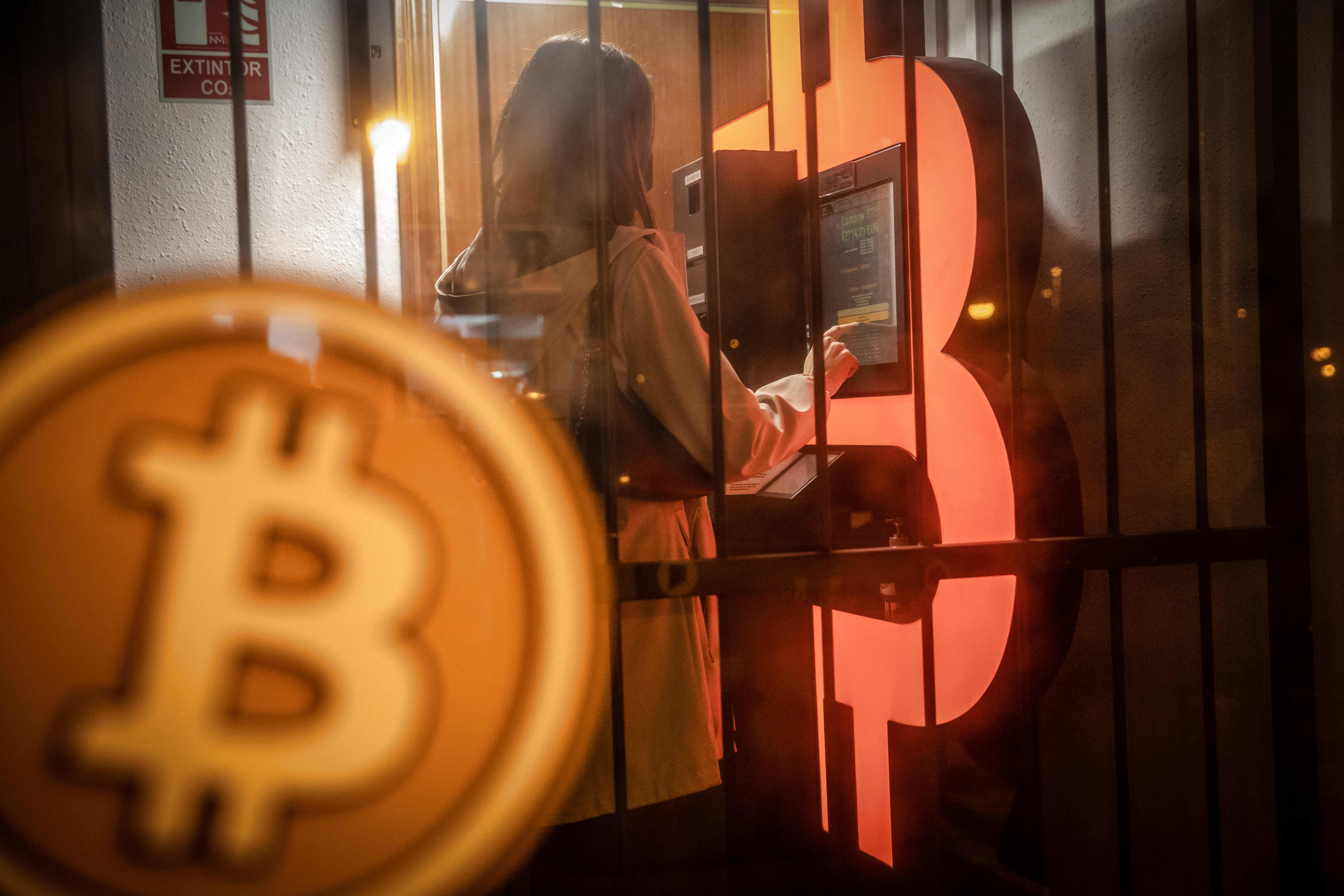
A customer uses a bitcoin automated teller machine (ATM) in a kiosk Barcelona, Spain, on Tuesday, Feb. 23, 2021.
Angel Garcia | Bloomberg | Getty Images
Bitcoin fluctuated between gains and losses Thursday, as the world’s largest cryptocurrency struggled to recover from a major sell-off during the previous session.
The digital currency initially climbed Thursday morning, trading as high as $40,700 at one point, before slipping down as low as $38,965, according to data from Coin Metrics. It was last up 2.6% at a price of $39,980.
Some of bitcoin’s younger alternatives also attempted a comeback Thursday, with ether up 2.2% at $2,676 and litecoin rising 3% to $209.
It comes after a brutal plunge for cryptocurrency markets. On Wednesday, bitcoin dived 30% to nearly $30,000 at one point, before paring some of those losses later in the session. The entire crypto market lost hundreds of billions of dollars of value in a single day.
The move lower was likely driven by mixed signals from Tesla CEO Elon Musk — who came out as a believer in bitcoin earlier this year — and a regulatory clampdown on the market in China.
On May 12, Musk said his electric car firm had suspended vehicle purchases with bitcoin due to environmental concerns over the cryptocurrency. Bitcoin uses more energy than entire countries like Argentina and Ukraine, according to Cambridge University researchers. This is due the energy-intensive “mining” process which releases new bitcoins into circulation.
Earlier this week, Musk suggested Tesla may have sold his bitcoin holdings, only to later clarify that the firm had “not sold any bitcoin.” On Wednesday, he tweeted the “diamond hands” emoji, implying that the electric vehicle maker would not shed any of its bitcoin.
Also weighing on bitcoin’s price Wednesday was the news that China had banned financial institutions and payment firms from providing cryptocurrency-related services, reiterating its tough stance on digital currencies.
“If you look at the history of bull markets, a correction of this size, between 30-40% of bitcoin price, tends to be part of the bull market,” Alyse Killeen, founder and managing partner of bitcoin-focused venture capital firm Stillmark Capital, told CNBC Wednesday.
Institutional investors jumping ship?
Bitcoin investors say the cryptocurrency has become a kind of “digital gold,” providing protection from rising inflation as central banks around the world print money to soften the economic blow of the coronavirus crisis. They say that this has led to increased buying from institutional and corporate investors.
However, in a note to clients this week, analysts at JPMorgan said institutional investors were dumping bitcoin in favor of gold, reversing the trend that’s played out over the last two quarters.
“I did talk to friends in the institutional bitcoin buy and custody space … and what I heard from them is that folks aren’t selling,” Killeen said.
“What you saw was newer buyers were exiting and long-term holders were accumulating or ‘hodling,‘ and that’s what we have historically seen at these more significant drawdowns in bull markets,” she added.
Meanwhile, there have been various signs of froth in crypto market lately. Dogecoin, a meme-inspired digital currency, saw a stunning rally earlier this year, propelled by supportive comments from Musk and other celebrities like Mark Cuban and Gene Simmons.
Crypto skeptics would argue that all digital assets are in a speculative bubble. In a closely-watched fund manager survey, Bank of America found “long bitcoin” was the most crowded trade. According to the firm, 75% of fund managers said the cryptocurrency was in bubble territory.





































